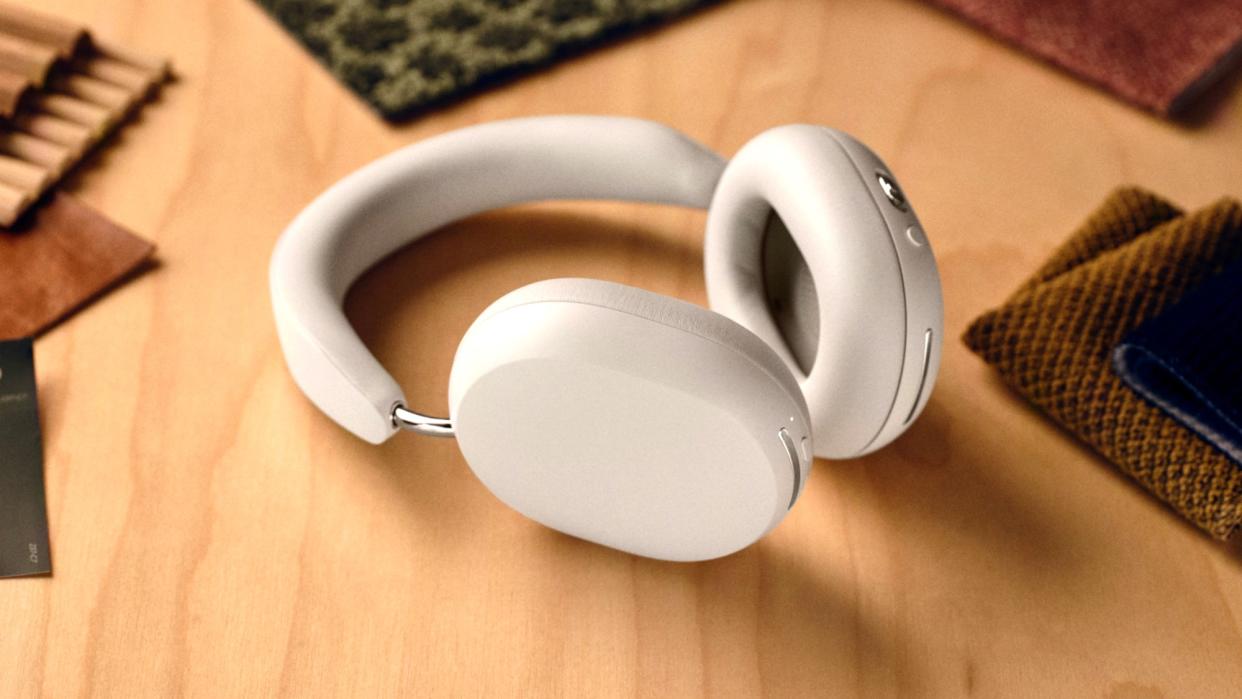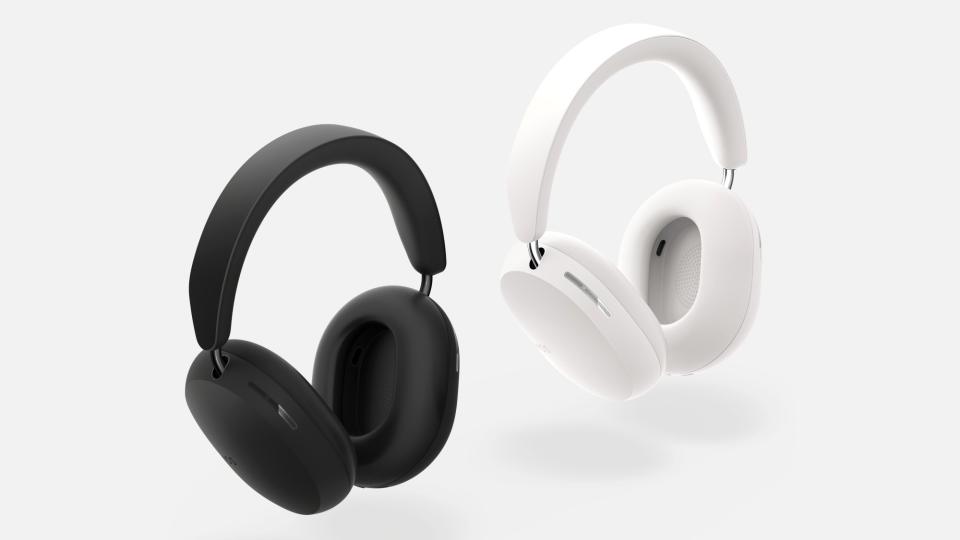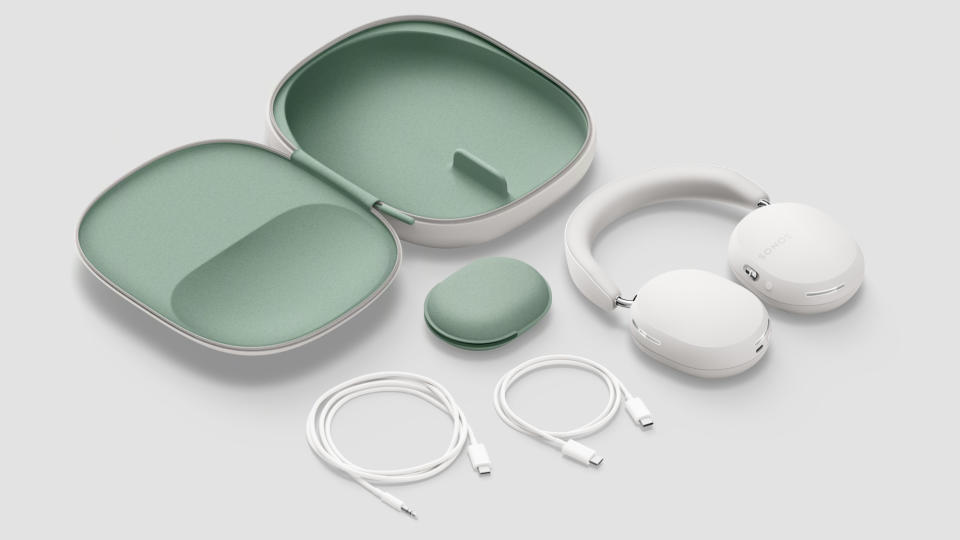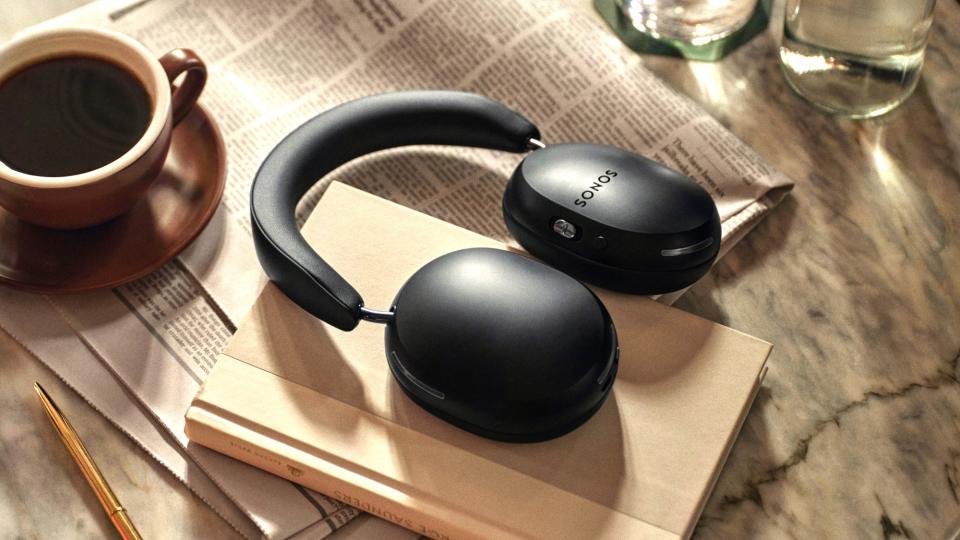Sonos Ace wireless headphones: 5 things I love (and 1 I don't)

Sonos finally unveiled its first-ever headphones earlier this week (May 21). While the arrival of Sonos Ace headphones have felt like a long time coming, there's no doubt that they look like being a great addition to the company's lineup when they go on sale on June 5. But will they make it to our list of the best noise-canceling headphones?
Although I've yet to receive a review pair of Sonos Ace headphones, from the specs and the briefing I've had so far, they're almost everything I expected to see from the brand synonymous with slick multi-room speakers and components.
I've been following the Sonos headphone rumors for several years now. While I'm pleased to see that much of the speculation on Sonos' first-ever wireless headphones appears to have come true, not everything has turned out the way I hoped. Surprisingly, one of the most anticipated Sonos features that grabbed the greatest rumor attention isn't supported after all.
With that in mind, here's a breakdown of the five things I love about the new Sonos Ace headphones, and the one I don't.
Sonos Ace headphones: 5 things I love

1. Design and build
The $449 / £449 / AU$699 premium cost means that you can expect Sonos' usual high build quality. According to my colleague Mike Prospero's hands-on experience, they are an elegant, minimalist design. The cups have a rounded, oval shape, and are attached to the headband with a very slim metal connector; the hinges are all hidden within the cups themselves, which not only gives it a sleek look, but helps prevent hair from catching in the mechanism, according to Sonos.
They're available in matte finishes with metal accents but colors are limited to just black and soft white, and they lack the wider range of color choices available on price rivals such as Apple's AirPods Max the Bose QuietComfort Ultra Headphones. The Sonos Ace headphones are a fold-flat design with a slim profile. They come supplied with a hard carry case that said to be manufactured from recycled materials.
I've yet to compare the weight of the Sonos Ace headphones with main rivals, but Sonos says that its new headphones are a lightweight design that features soft memory foam ear cushions for all-day comfort. The ear cushions are replaceable.
2. Noise canceling

While it makes sense that Sonos' first pair of headphones have active noise-canceling, the company has been coy about mentioning much about its capabilities in terms of the level of external sounds they are capable of blocking out. All Sonos says is that its world-class Active Noise Cancelation pinpoints and neutralizes external sounds for maximum immersion. There's a transparency mode called Aware Mode to allow wearers to hear what's going on around them.
Although noise-canceling tech is a new area for Sonos, at the price I'd expect the performance to be a rival to one of the top-ranking models in the best noise-canceling headphones category. It's impossible to predict until I carry out my own tests in real-world situations. In the meantime, I have high hopes.
3. Connectivity

Wireless connectivity runs on Bluetooth 5.4 with SBC, AAC codec support and aptX Lossless when connected to compatible playback devices. That makes them better specified than the Apple AirPods Max and the Bose QuietComfort Ultra Headphones with near-CD-quality audio capabilities over Bluetooth when connected to the right playback device and the best music streaming services.
As with many wireless headphones, the Ace headphones can also be connected via a USB-C-to-3.5mm audio cable, enabling wearers to make a wired connection to compatible playback devices for listening to lossless and hi-res audio.
4. Battery life

The Sonos Ace claim a battery life of 30 hours with ANC enabled, which is better than several of its competitors. For example, the AirPods Max are rated for 20 hours of playback, and the Bose QC Ultra Headphones give 24 hours.
While the Sonos Ace look like being the stronger of the three premium-priced noise-canceling headphones, the $399 Sony WH-1000XM5 headphones can go for 30 hours with noise canceling enabled and up to 40 hours with it switched off.
5. Controls and sensors
Rather than adding touch controls to the Ace headphones, Sonos has opted for physical buttons on the earcup. The tactile Content Key gives play/pause, volume up/volume down, while a secondary button gives noise control on/off, aware mode, and voice control options.
Built-in sensors detect when you're wearing Sonos Ace, so playback pauses as you take them off and resumes as you put them back on.
Sonos Ace: What I don't like
Rumors of a pair of wireless headphones from Sonos first began circulating in 2019. Expectations around the specification for a pair of headphones from a brand that builds the world's most robust home networked speaker systems emerged, and several suggested that they could be Wi-Fi-enabled headphones to integrate with Sonos' multi-room ecosystem. This of course excited audiophiles like myself as they would potentially also be able to offer true lossless and hi-res audio support from the likes of the best music streaming services including Apple Music and Tidal.
There's no true lossless audio and hi-res audiophile support I hoped for.
Disappointingly, only part of it turned out to be true. There's no true lossless audio and hi-res audiophile support over Wi-Fi I hoped for, nor is there playback integration directly from the newly updated Sonos app. They won't even integrate with external 'works with Sonos' components such as a turntable or external sources connected to a Sonos Amp, Sonos Era 100, or Sonos Era 300.
The Sonos Ace headphones are Bluetooth headphones that don't support Sonos' multi-room Wi-Fi system. When they do connect over Wi-Fi, it's only to swap the TV audio from a Sonos Arc soundbar to the headphones, which is neat but not the same level of Wi-Fi integration or audiophile listening boost I hoped for.
Look out for my full review of the Sonos Ace, coming soon.
